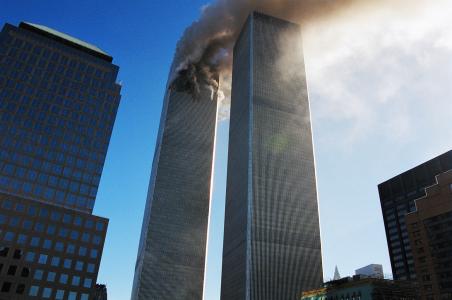Growing up Together: 911 Archives and Web 2.0

Recent history, many instructors say, is the most difficult to teach. The dearth of materials and historical commentary is exasperated by the lack of perspective and the incomplete construction of national memory. But the events of 911 might signal a radical shift in the historiography of contemporary events due to developments in digital archiving. The decade following 911, after all, was also the decade of Web 2.0.
In fact, exploring the archival records of the world pre-911 often evokes the same feelings as glimpsing into the world pre-Web 2.0. Veering into this not-too-distant-past, one feels a distinct curiosity of a queer and alien society that is checkered with analog television, basic HTML and short lines at the airport. Some people my age enjoy telling the young ones: “When I was your age, we could bring water bottles onto planes and the only online payment services were on porn sites,” if only to feel seasoned and mature.
Indeed, for people like myself who have grown up with and alongside the Internet, it is amusing to recall what the World Wide Web was in 2001 – and how far its come. The Internet Archive’s ‘Wayback Machine’ provides a fascinated glimpse (aided by a beautiful user interface) into the Web circa 2001; witness, for instance, the awkward display of HTML-naïveté that was the New York Times webpage on September 05, 2001.
The same feelings of distance and curiosity holds true for youths who have only faint recollections of the events of 911. “A student entering middle school this coming fall will have been merely born into the world that al-Qaeda and George W. Bush created,” says Clare Potter, Professor of History and American studies at Wesleyan University. “Regardless what level of history course you are teaching, your students will have no accurate memories of this very recent past and yet they might yearn to understand the events through which their parents and siblings lived.”
The 911 attacks is probably the most archived event on the Internet, but the development of such archives is as tenuous and unexpected as the development of Web 2.0 itself. Indeed, like most of internet and communications technology (ICT), digital archives of 911 were first developed by social fringes, miscreants, and outcasts who relied on the Internet to share information and build communities that were considered taboo by offline civilization. A significant portion of the first ‘repositories’ of 911 related documents were formed to bolster theories hypothesizing a US-government-led conspiracy responsible for the events of 911 (such as 911truth.org and 911citizenswatch.org).
Once Web 2.0 became more populated by ‘traditional’ media organizations, museums, and educational institutions, 911 archiving became decisively more mainstream. In an unprecedented experiment in digital archival collecting, the September 11 Digital Archive became the Library of Congress‘s first major digital acquisition. The events of 911 have prompted other academic and media institutions to enter the world of digital archives, from NPR to Columbia University.
Exploring these archives, one gets the acute feeling that ‘the world has changed’. But this feeling is rooted not only in the events themselves but the forms in which they are presented, particularly the now-archaic 90s technology of rabbit ears and low-def. Archiving the museum-quality technology of TV, The Internet Archive has chronicled over 3000 hours of television coverage on the 911 attacks, with footage beginning shortly before the first reports, in an elegant interface that includes commentary by noted scholars. A remarkable feature about this coverage is the style of reporting – or stream of consciousness – given by the anchors as they experience the visceral anxiety of watching the events unfold. As Computer World recently reported, “NBC's news anchors are obviously stunned and unsure about what had taken place. The contrast is jolting.” Contrast here can refer to both the worlds pre- and post-911, as well as pre- and post-Web 2.0.
It is not an understatement to say that the events of 911 have shaped the development of digital archiving, if not incited its very existence. This process has had profound implications for the ways in which we write and teach history. In an article worth reading, Professor Potter writes on how the digital archives mentioned above have aided her own teaching on September 11, 2001 and its impact on American history. Not only do these archives provide helpful pedagogical tools on the subject of 911, but they may also be helpful towards understanding the tenuous development of digital humanities in general.
It is too soon to know how either 911 or Web 2.0 will be remembered 10 years from now. Then again, history it still being written - or posted.
List of Digital Archives Dealing with 911:
Time’s portrait of 911 as well as a critical intervention on its lack of Black American perspectives by The Root.